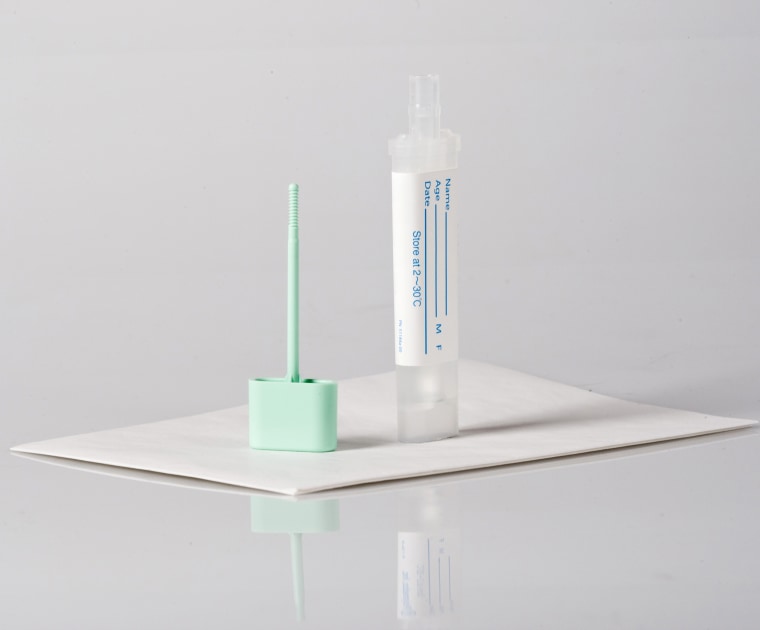A standard test for colon cancer that looks for blood in the stool may turn up more risks than doctors or patients bargained for, researchers reported Monday.
They found that patients who had hidden blood in their stool had a higher risk of dying from colon cancer. That was no surprise.
But they also found that people with blood in their stool had a 58 percent higher risk of dying from other causes as well.
The surprising finding indicates that hidden blood in the stool could be a sign of a range of potentially fatal diseases, some of them not normally associated with internal bleeding, the team reported in the journal Gut.
“If the eye is the window to the soul, is a fecal test the window to general health?” Dr. Uri Ladabaum of the Stanford University School of Medicine, who was not involved in the study, asked in a commentary.
Dr. Robert Steele of Ninewells Hospital in Dundee, Scotland, and his colleagues looked at the medical records of more than 130,000 people who took fecal occult blood tests in the region from 2000 to 2016. The test looks for tiny traces of blood in the stool, a way of screening people for colon cancer.
Over that time, about 2 percent of the people, about 2,700 of them, had positive tests.
As expected, people whose tests came back positive were more than seven times as likely to eventually die of colon cancer than people who did not have blood in their stool, the researchers reported.
“The more interesting finding is the association with non-colorectal cancer mortality,” Steele’s team wrote.
People with positive blood tests were 58 percent more likely to die over the 16 years of the study than were people with negative tests, they found.
“It is clear from this study that in the Scottish population, the presence of blood in the feces as detected by (fecal occult blood testing) is associated with a number of non-colorectal cancer causes of death,” they wrote.
“Some of these may be associated with an increased risk of bleeding into the gastrointestinal tract, notably ‘other digestive diseases,’ but others, however, are not,” they added.
What’s going on?
Blood in the stool may point to generalized inflammation in the body, Steele’s team said. Inflammation is associated with most of the more common causes of death, including cancer, heart disease, diabetes and Alzheimer’s.
“In addition, factors predisposing to ill health, such as obesity, sedentary behavior, smoking, alcohol dependence and a Western diet, have been shown to be associated with systemic inflammation,” Steele’s team said.
In fact, it could be that the bleeding associated with colon cancer is not coming from colon tumors, but caused instead by this more general inflammation, they said.
In 2013, a team in Taiwan reached similar findings. Their smaller study of people in Taiwan found that people who had positive fecal occult blood stool tests were 15 percent to 24 percent more likely to die from any cause over the next six to eight years.
“Occult blood in feces may be telling us about health beyond the colorectum,” Ladabaum wrote.
At this point, there’s not enough information to say whether people should use such a test for general health screening, or do anything other than get a full colonoscopy after a positive score on a fecal occult blood test, Ladabaum said.
“Possibly a general alert to the patient and her or his primary care physician might be reasonable, but my hope is that primary care physicians would be addressing risk factors for these other diseases already,” Ladabaum wrote.


